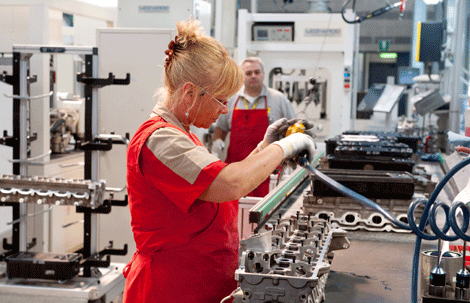Poll: Few Italians willing to make personal sacrifices to help economy
Updated: 2011-11-24 07:59
(China Daily)
|
|||||||||
|
|
ROME - Ninety-three percent of Italians believe cutting the country's hobbling public debt is a top priority, but few are willing to make personal sacrifices to do so, according to an AP-GfK poll released on Tuesday.
Only about a quarter of Italians favor reforming labor laws to make it easier to fire workers, or raising the retirement age from 65 (and sometimes lower) to 67 - two of the reforms considered critical to curb Italy's public spending and boost economic growth.
But while the European Union is demanding such reforms, 52 percent of Italians still have a favorable view of the EU, and a full 76 percent think Italy should stay in the 17-nation eurozone, according to the survey, conducted last week.
Italy has been engulfed in financial turmoil for weeks as markets woke up to the enormous size of its debt - 1.9 trillion euros ($2.6 trillion), a eurozone high coming in at 120 percent of GDP.
Italy's economy is hampered by high labor costs, government payrolls and excessive taxes, choking bureaucracy and low productivity and numbers of college graduates.
Yet as the third-largest economy in the eurozone, Italy is too big for Europe to bail out like it did for Greece, Portugal and Ireland.
While there is some hopefulness about the future of the economy - 55 percent anticipate a better situation five years from now - the long-term picture is gloomier. Only 35 percent of Italians think people will be better off in 20 years than they are now, while 43 percent anticipate a harder life for the next generation.
"Our generation always looked forward with the possibility of improvement," said Alfonso Marozzi, 72. "Now, young people are resigned to wonder if they'll be able to hold onto what their parents were able to build. There's a lack of hope in the future."
A full 93 percent of Italians said reducing the public debt was either an "extremely" or "very important" goal for the government to tackle over the next decade.
Yet only 26 percent of those surveyed favored raising the retirement age to 67 to help cut spending, while 67 percent were opposed. Parliament recently passed legislation raising the retirement age to 67 starting in 2026 and to 70 by 2050.
Italian politicians have made few efforts to reform the labor market, and the results of the AP-GfK poll of 1,025 Italian adults shows why. Seventy percent of respondents opposed deregulating the labor market to make it easier to fire workers, with only 22 percent favoring it. Of the 70 percent opposed, a full 56 percent were "strongly opposed".
Ultimately, labor market reforms are likely to be much broader than just changes involving firing. Prime Minister Mario Monti's government is expected to open up "closed professions", such as lawyers, notaries and taxi drivers, which in some cases restrict entry to people with connections or set standard prices that deprive the market of competition.
Monti also plans to loosen Italy's system of collective bargaining, in which unions negotiate with entire industries rather than individual companies. Italy's biggest carmaker, Fiat SpA, told unions on Monday that it is tossing out the old model as of Jan 1 and will seek to negotiate new contracts plant by plant - something it has already done in four locations.
Raj Badiani, an economist at IHS Global Insight in London, said Fiat "is probably the forerunner of what we need to see". But he cautioned: "Trade union opposition to that will be immense."
However, the AP-GfK survey found that labor unions in general get broadly negative ratings from Italians, with 53 percent of respondents saying they "only sometimes" or "never" trust unions to do the right thing.
Associated Press












